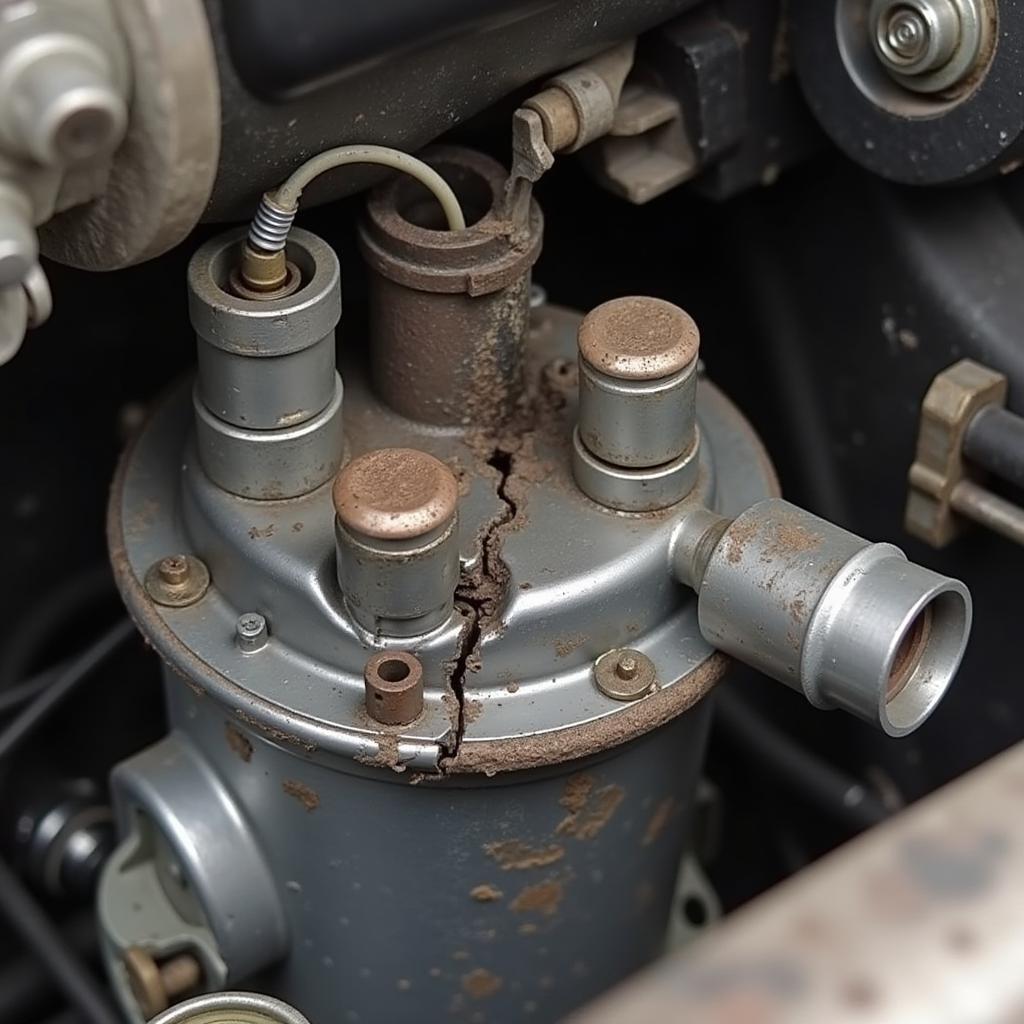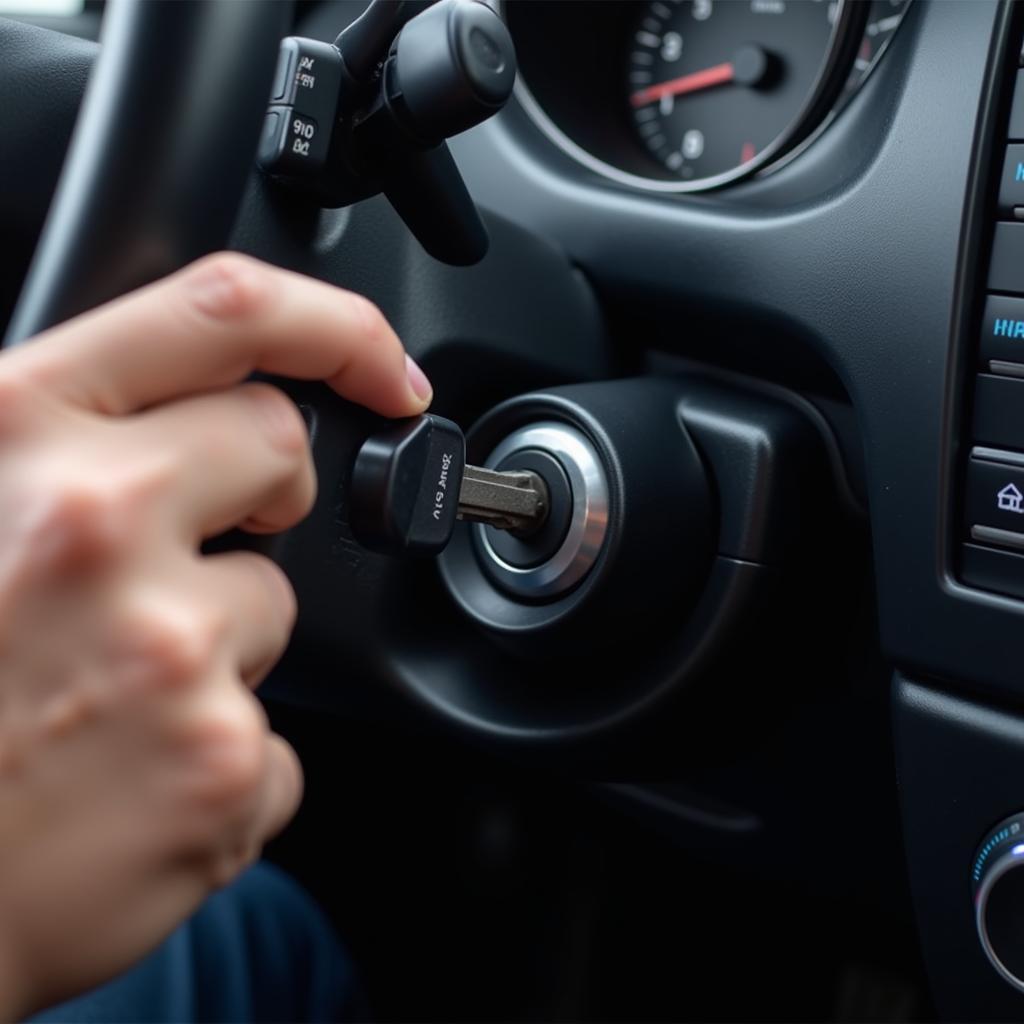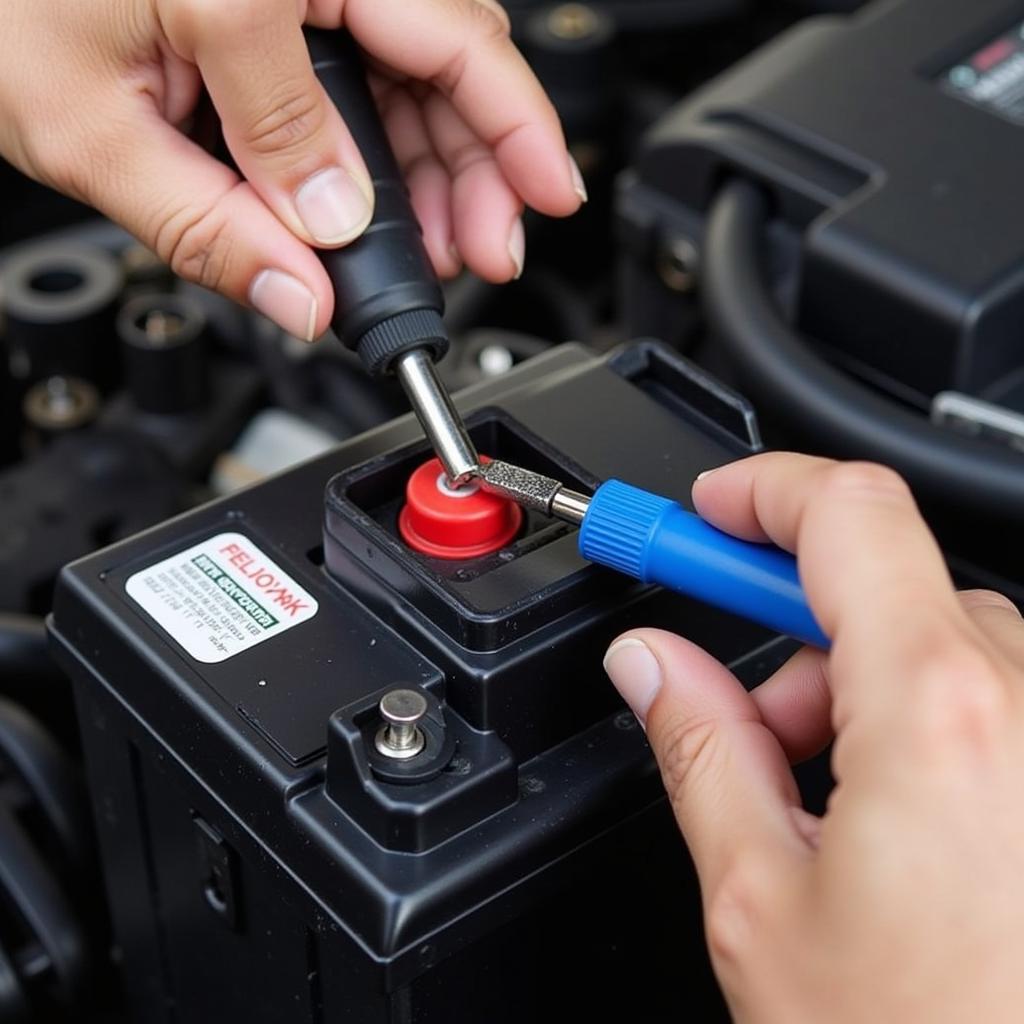If your car has a problem on the first start-up, then runs fine afterward, you’re not alone. This frustrating issue can be caused by a variety of factors, ranging from simple fixes to more complex electrical or mechanical problems. This guide will walk you through common culprits and how to diagnose them, whether you’re a DIY enthusiast or prefer professional help. After the initial startup, everything seems normal, right? That’s the tricky part! Let’s dive into why your car might be acting up on that first start.
If your car is experiencing other electronic gremlins, you might want to consult resources regarding cars with computer problems. cars with computer problems
Common Causes of First Start-Up Problems
Several components can contribute to a car struggling only on its initial start-up. Understanding these common culprits is the first step to resolving the issue.
Fuel System Issues
- Fuel Pump: A weakening fuel pump may struggle to deliver adequate pressure on the first start, especially after sitting for a while. Once running, the momentum might be enough to maintain pressure.
- Fuel Filter: A clogged fuel filter restricts fuel flow, leading to hard starts. Continuous running might slightly clear the obstruction, temporarily improving performance.
- Fuel Injectors: Leaky or dirty fuel injectors can disrupt the air-fuel mixture, causing rough starts. Once the engine warms, these issues might become less noticeable.
Electrical System Issues
- Battery: A weak battery can have enough juice for a single start, but then struggle to maintain voltage.
- Alternator: If the alternator isn’t charging properly, the battery might drain overnight, leading to a difficult first start.
- Spark Plugs: Worn spark plugs can cause misfires, particularly when cold. The problem might lessen as the engine heats up.
Sensor Problems
- Coolant Temperature Sensor: A faulty sensor can provide inaccurate readings to the engine control unit (ECU), leading to an incorrect air-fuel mixture on start-up.
- Mass Airflow Sensor: Similar to the coolant temperature sensor, a faulty MAF sensor can disrupt the air-fuel ratio, resulting in hard starts.
 Faulty Fuel Pump Causing Hard Start
Faulty Fuel Pump Causing Hard Start
Diagnosing the Problem
Pinpointing the exact cause requires some detective work. Here’s a systematic approach:
- Listen Carefully: Pay attention to the sounds your car makes during the first start. Clicking, whirring, or grinding noises can indicate specific problems.
- Check the Battery: Have your battery tested to ensure it’s holding a charge and providing adequate cranking amps.
- Inspect the Fuel System: Look for leaks or signs of damage in the fuel lines, filter, and pump.
- Check for Diagnostic Trouble Codes (DTCs): Use an OBD-II scanner to retrieve any stored codes, which can provide valuable clues.
Dealing with electrical issues? This resource on electrical or computer problems in cars might be helpful: electrical or computer problems in cars.
DIY Solutions and When to Seek Professional Help
Some issues, like cleaning battery terminals or replacing a fuel filter, are relatively easy DIY tasks. However, more complex problems involving the fuel pump, alternator, or sensors often require specialized tools and expertise.
“A common mistake is assuming a hard start is always a battery issue,” says automotive expert John Miller, ASE Certified Master Technician. “While a weak battery is a possibility, overlooking other potential culprits can lead to unnecessary expenses and frustration.”
 Mechanic Diagnosing Car Startup Problem
Mechanic Diagnosing Car Startup Problem
Preventing Future Start-Up Problems
Regular maintenance is key to avoiding these headaches. This includes:
- Routine Fuel System Cleaning: Use fuel system cleaners periodically to remove deposits and keep injectors clean.
- Battery Maintenance: Clean battery terminals and ensure proper connections. Replace your battery every 3-5 years.
- Scheduled Tune-Ups: Follow your car’s recommended maintenance schedule for spark plug replacements and other essential services.
“Preventative maintenance is the best medicine for your car,” advises automotive engineer Sarah Chen. “Addressing minor issues early can prevent them from escalating into major, costly repairs down the line.”
Conclusion: Getting Your Car Started Right Every Time
A car that has problems on the first start-up then runs fine can be a puzzle. By understanding the potential causes and following a systematic diagnostic approach, you can get to the root of the problem and get back on the road. Don’t hesitate to reach out to a qualified mechanic for assistance if needed. For further help, connect with us at AutoTipPro at +1 (641) 206-8880 or visit our office at 500 N St Mary’s St, San Antonio, TX 78205, United States.
 Car Starting Smoothly After Repair
Car Starting Smoothly After Repair
Is copying data from your car’s SD card giving you trouble? Check out this guide: problems copying sd car to computer.
FAQ
- Could a bad starter cause this problem? While a bad starter can cause starting issues, it typically wouldn’t explain why the car runs fine after the initial start.
- Is it safe to drive my car if it only has problems on the first start? It depends on the severity. If the problem is minor, it might be drivable, but it’s best to get it diagnosed to avoid potential damage.
- How much does it cost to fix a first start-up problem? The cost varies widely depending on the underlying cause. A simple fix like cleaning battery terminals could be free, while replacing a fuel pump could cost several hundred dollars.
- Can extreme temperatures affect my car’s starting ability? Yes, both extreme cold and heat can impact battery performance and other components, leading to starting problems.
- How often should I have my car serviced to prevent starting issues? Follow your car’s manufacturer-recommended maintenance schedule for optimal performance and reliability.
- Could a faulty fuel pressure regulator cause this issue? Yes, a failing fuel pressure regulator can cause inconsistent fuel pressure, leading to hard starting.
- What if the problem is intermittent? Intermittent issues can be challenging to diagnose. Keeping a log of when the problem occurs can help your mechanic identify the cause.
Are you having trouble with your Nissan’s transmission? See if your model is on the list: list of cars nissan transmission problems.
 Car Battery Maintenance for Smooth Starts
Car Battery Maintenance for Smooth Starts
If you’re facing dealership computer problems, this might offer some insight: car dealers computer problems.





Leave a Reply